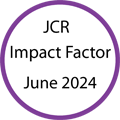Effects of Obstructive Sleep Apnea Hypopnea Syndrome on Blood Pressure and C-Reactive Protein in Male Hypertension Patients
Abstract
Background: The influences of obstructive sleep apnea hypopnea syndrome (OSAHS) on blood pressure and C-reactive protein (CRP) were observed, and the underlying mechanism was investigated.
Methods: Respiratory sleep monitoring was performed on 188 male patients who were newly diagnosed with hypertension. Based on the apnea hypopnea index (AHI) results, patients were divided into a normal control group (AHI <= 5, n = 35), a mild OSAHS group (5 < AHI<= 15, n = 28), a moderate OSAHS group (15 < AHI<= 30, n = 57), and a severe OSAHS group (AHI > 30, n = 68). Ambulatory blood pressure monitoring was conducted on patients in each group, and blood samples were collected to detect indicators, including fasting blood glucose (FBG), triglyceride (TG), low-density lipoprotein-cholesterol (LDL-C), high-density lipoprotein-cholesterol (HDL-C), and high-sensitivity CRP (hs-CRP).
Results: TG and hs-CRP in patients in the moderate and severe OSAHS groups were higher than those in the normal control group (P < 0.01, P < 0.05). Additionally, their mean nocturnal systolic blood pressure (nSBP) and nocturnal diastolic blood pressure (nDBP) were higher than those in the normal control group (P < 0.01, P < 0.05). However, the percentage of blood pressure reduction at night was significantly lower than that in the normal control group (P < 0.01). AHI and hs-CRP positively correlated with nSBP (adjusted R2 = 0.46) and nDBP (adjusted R2 = 0.38) and negatively correlated with the nocturnal blood pressure reduction percentage (adjusted R2 = 0.48).
Conclusion: Moderate and severe OSAHS induced increases in nocturnal blood pressure and CRP content in the body, resulting in further damage to the circadian rhythms of blood pressure.
J Clin Med Res. 2016;8(3):220-224
doi: http://dx.doi.org/10.14740/jocmr2409w











